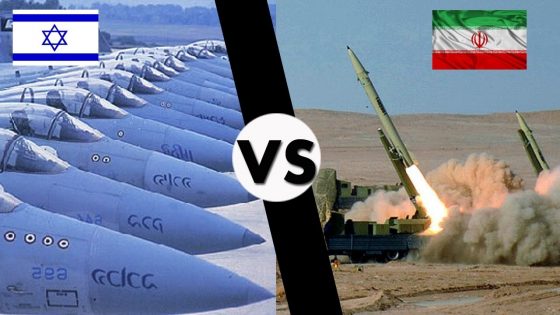Al Sabaileh: great fear of Israeli attack on Iran, with the risk of ‘serious escalation’
For the Jordanian expert, the picture is “negative” with Israel “operating on multiple, non-bordering fronts,” perhaps soon even inside Iran. The United States orders the evacuation of its embassy in Iraq, the most exposed in the event of conflict. The IAEA approves a resolution against Iran, raising the possibility of fresh sanctions.
Baghdad (AsiaNews) – Across the Middle East fears are growing that Israel might carry out an attack against Iran, triggering a “serious escalation” that the Jewish state seems to be pursuing as part of its regional strategy, this according to Amer Al Sabaileh, an expert on Middle Eastern issues, international security and the peace process in crisis areas, and a contributor to several newspapers including The Jordan Times.
Speaking to AsiaNews about the "winds of war" between Israel and Iran, he explains that the picture “is negative”, fuelling fears for the immediate future.
"Israel,” he notes, “now operates on multiple, non-bordering fronts, in Yemen, for example, and perhaps soon also in Iran" inside the territory of the Islamic Republic.
The US decision to evacuate its embassy in Iraq is increasing the prospect of an Israeli attack, which would trigger a confrontation that could be far worse than the skirmishes, raids and targeted and symbolic reprisals of the recent past.
It is precisely on Iran’s Arab neighbour that the greatest attention is focused, also because Iran exerts great influence in the country.
For Al Sabaileh, Iraq has become the only front left for Iran, because almost two years of wars and attacks by Israel in the region – from Gaza and the West Bank to Lebanon, Syria to Yemen – have weakened the encirclement of the Jewish state.
The order to evacuate the US embassy in Iraq issued yesterday was extended overnight to other diplomatic missions in the Middle East, starting with Kuwait and Bahrain, where "non-essential personnel" were recalled home.
The Pentagon has also reportedly authorised military family members to leave the Middle East.
US President Donald Trump has repeatedly threatened to strike the Islamic Republic if nuclear talks fail. Speaking at the Kennedy Center yesterday, he said that Americans have been advised to leave the region "because it could be a dangerous place, and we'll see what happens".
Iranian Defence Minister Aziz Nasirzadeh delivered Iran’s response with threats at US bases in the region in the event of attacks on Iranian territory; Iranian sources also claim to have been informed by a “friendly” country of a possible attack.
Washington has a significant military presence in the world’s oil-producing heartland, with bases in Iraq, Kuwait, Qatar, Bahrain, and the United Arab Emirates.
Iraq is trying to defuse the tensions, with the state news agency citing a government source as saying that Baghdad did not report any security indication that would require an evacuation.
“Iran does not seem to realise that it is difficult to continue to avoid the clash [with Israel and the US], which is already happening every day on various fronts and in different ways,” said Al Sabaileh, author of strategic studies on war and terrorism in North Africa and the Middle East.
“From these elements, it is clear that there is no veto on Israel to attack or intervene inside Iran, even if up to now the American position advised against such an attack, at least until the negotiations with Tehran are concluded.”
Today, the Board of Directors of the International Atomic Energy Agency (IAEA) approved a resolution presented by France, the United Kingdom, Germany, and the United States formally declaring that Iran had failed to uphold “its obligations under its Safeguards Agreement “:
According to some sources, 19 countries approved the resolution, while three – Russia, China and Burkina Faso – voted against it. Another 11 nations abstained and two did not vote.
For the first time in 20 years, Iran has been deemed non-compliant, laying the foundations for possible new UN sanctions by the end of the year. What is certain is that this decision risks triggering further tensions at a time of profound uncertainty with a risk of escalation.
In the draft resolution, the Board of Directors calls again on the Islamic Republic to provide “without delay” answers regarding traces of uranium found in certain locations, which Tehran had not declared as nuclear sites.
For Western experts, the latter could be evidence of Iran’s secret nuclear programme, underway since 2003, aimed at building an atomic bomb.
At present, Iran has not yet reacted to the vote, but in the past it had threatened retaliation in case of negative vote; meanwhile, there are persistent rumours within Iran about a new facility to enrich uranium built “in a secure location”.
The situation appears increasingly critical ahead of a sixth round of nuclear talks between the United States and Iran on 15 June, which Oman confirmed.







.png)










